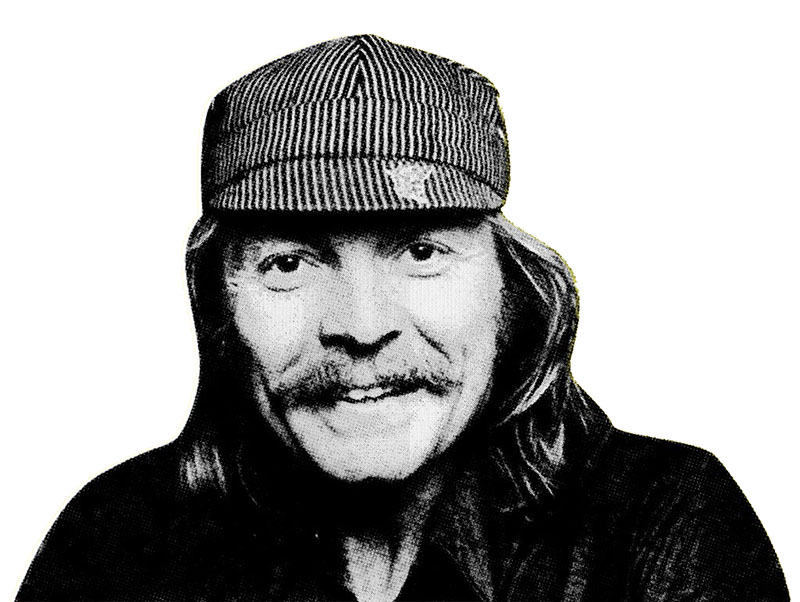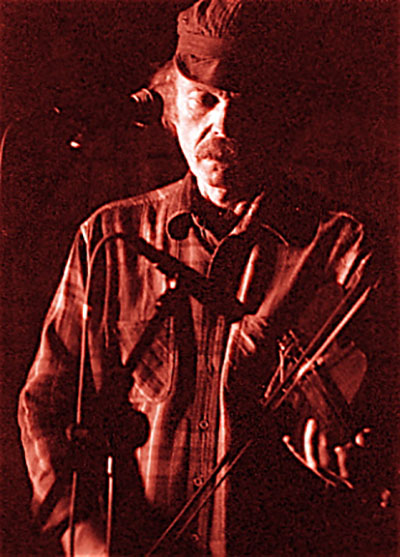
In the aftermath of Donald Trump’s ascendency to the American presidency, political sociologists scratched their heads trying to explain the emergence of the Trump vote. While some fumbled for the convenient crutch of a conspiracy theory, others acknowledged that there had been, maybe only temporarily, a seismic shift in the American voting demographic.
For those outside of the comfort zone of institutional politics, economic security and politically correct discourse, Trump’s colourful rhetoric was a beacon of hope.
Michael Hurley is a product of the Greenwich Village folk scene of the early 1960's. Back in the day, the Village was a haven for earnest singer-songwriters whose blend of poetic lyrics and folk melodies laid the musico-cultural foundations for the more celebrated counter-cultural movement that peaked toward the end of the decade. Some, like Bob Dylan, mutated into pop cultural icon; others, like Hurley, remained on the fringes.
 Michael Hurley
Michael Hurley
Darren Hanlon
Northcote Social Club, Melbourne
Tuesday, April 3, 2018
Hurley is back in Australia for the second time in recent memory. Last time he’d played to a sparse crowd of devoted fans at the Northcote Social Club. This time at the same venue, the room is full.
Despite its tabloid description, Northcote is no longer the bastion of single origin café lattes, vegan sausages and organic hemp clothing. The run-down Californian bungalows shared by artists and musicians are disappearing on a daily basis, replaced by ugly neo-Bauhaus grey boxes, double garages and four-wheel drives used to transport children to elite private schools across town.
The haves are very much in power; the have nots have been squeezed out to the outer north, west and way out east.
Some of the New Northcote demographic is represented tonight. But mainly it’s a younger crowd, students of music history who’ve been found their way to Hurley most likely via Dylan and The Byrds, maybe taking a detour along the way to check out the idiosyncratic psych-folk sounds of The Holy Modal Rounders.
Hurley looks like he sounds: thin-faced, wisps of grey hair, a dozen strands of facial hair masquerading as a moustache. A faded blue hat that might be found in the fashion section of a museum of early 20th century railway artefacts. A neckerchief and plaid shirt, just the rustic side of rust-belt.
Hurley sings in the vernacular of a romanticised Real America: boozin’, travellin’, grits and molasses. Long before Portlandia there was Portland Water. But in the cover of Hank Williams’ "Rambin’ Man" can be seen the less-celebrated reality that, arguably, underpins the Trump thing: drinking, drug addiction, economic destitution and social dislocation.
The music is traditional folk via Southern blues, the Caucasian interpretation of the Afro-American hardship that lies at the heart of rock’n’roll.
Hurley’s charisma is subliminal: there are no rambling anecdotes, no sermons from the stage, no gratuitous proclamations of impending people power uttered by some fading baby boomer icon. Hurley’s just there, doing what he’s always done, playing music and singing, this time to a room full of Australians.
Local musician Darren Hanlon joins Hurley on stage for half a dozen songs, half on electric guitar, half on the rust belt instrument of choice, the banjo. Oddly, given their disparate ages and absence of geographical proximity, Hurley and Hanlon seem like old friends, trading licks on the front porch of a Catskills bungalow.
It’s all over by 10.45, and Hurley arises from his chair, waves politely and shuffles off stage. The crowd mills briefly, hoping for an encore. But old folkies don’t do encores. The night is over.
Michael Hurley isn’t real America - he’s an old white guy - but he’s as real as you’re going to get in a world suffocated by self-obsession and specious rhetoric.

